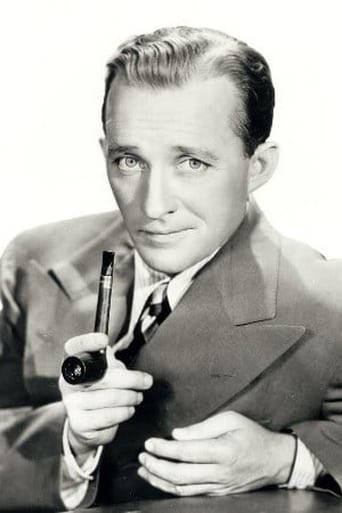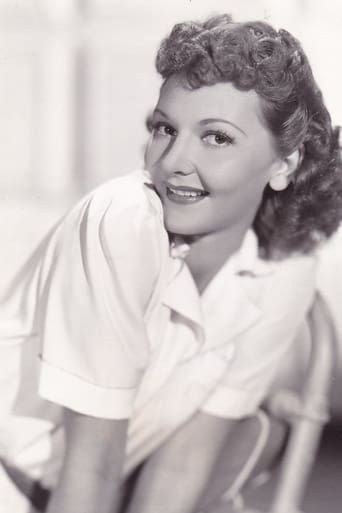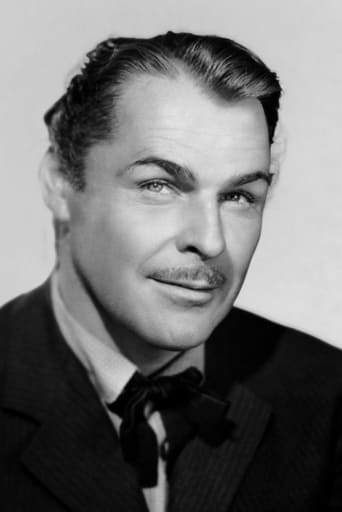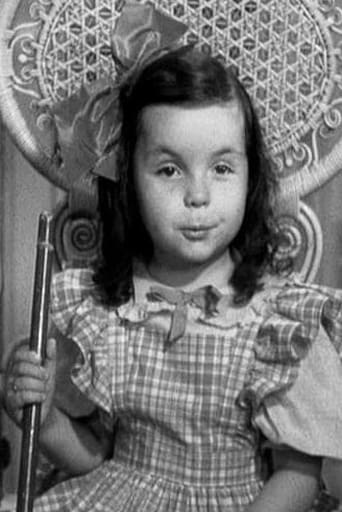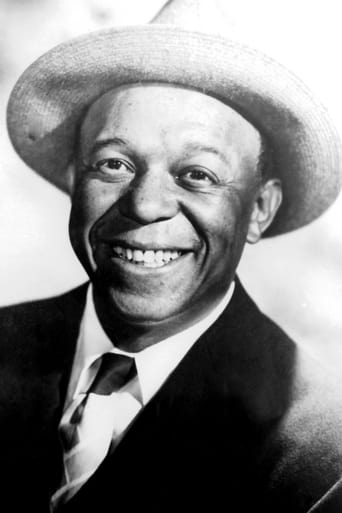TheLittleSongbird
Not a great film, and as far as Victor Schertzinger-directed and Bing Crosby and Mary Martin films go, there is a preference for 'Rhythm on the River'. However, despite the script, story and characterisation not being as strong as the rest this is good-natured entertainment.The songs and performances especially make much more of an impression than the aforementioned not-so-good things. The story is paper-thin, shallow and contrived. While the script has its fun, light-hearted and heart-warming moments, it's also talky, hokey and even flimsier than the storytelling. Despite strong performances, not much attention was given to characterisation, which is barely there.On the other hand, it is a very handsome looking film and very well directed by Schertzinger. The songs are simply great, standouts being the title song, "St Louis Blues", "Melancholy Baby" (definitely a highlight here) and the jazzy rendition of "Wait Till The Sun Shines Nellie". Even with its faults, there is something about 'Birth of Blues' that stops one from being too hard on it, it's funny, charming and good-natured.Performances are great, with Bing Crosby and Mary Martin singing in a way that takes you to another world that you don't want to leave, while they look comfortable and are charming. Brian Donlevy is delightfully roguish, J. Carrol Naish agreed seems incapable of being bad and while real-life trombonist Jack Teagarden is better as a trombonist than an actor there is denying how much of a legend he was on the instrument.In summary, not great but a good, fun film that are lifted particularly by great songs and a talented cast giving their all. 7/10 Bethany Cox
weezeralfalfa
Yes, once again, early Hollywood proved it had little regard for truth when it came to representing history! Expected. Yes, the musical numbers, rather than being purely representatives of early southern blues and jazz compositions, are a mixed bag of early 20th century Tin Pan Alley compositions, mostly ballads, 3 genuine blues or ragtime compositions by southern African Americans(AA) or whites, and even a British music hall standard in "Waiting at the Church". Presumably, the brass assumed that audiences would want more variety in musical styles than just blues or Dixieland, and I can't fault them for that. At the beginning, it says the film is dedicated to the pioneers of such music in New Orleans and Memphis. Well, the only connection with Memphis is a cornet-playing jailbird in NO, played by Brian Donlevy, who usually played villains. He seems to represent a combination of NO-based Caucasian Nick LaRocca, coronetist and co-composer of the featured "Tiger Rag", and AA W.C. Handy, who was for a time based in Memphis, did play the coronet, and did compose the two featured blues numbers "Memphis Blues" and "St. Louis Blues", often converted to jazz by others. We might expect a much more direct recognition of Handy's importance in a film of this title. For a much more historically-relevant treatment of his life and career, check out the later film "St. Louis Blues". That title song,only heard as sung by Bing during the opening credits, was, like most of the songs, actually a Tin Pan Alley composition. Even the opening "At a Georgia Camp Meeting", staged as played by an all African American band and sounding from the title like it was derived from an AA spiritual, was actually an early Tin Pan Alley composition.Yes, the screenplay is very hokey, the way Bing, Mary Martin(MM) and Donlevy meet and all serendipitously end up staying with Bing for want of other accommodations. Expected. We are left guessing about the true nature of the relationship between 6 y.o. 'aunt' Phoebe and MM. Maybe she is MM's daughter or niece, and maybe she is actually her aunt. Yes, possible. In any case, although no Shirley Temple, she served as an occasional quirky diversion from the adult drama and music, and functions as a sleeping 'prop' during Bing's soulful rendition of "My Melancholy Baby". Of course, the composer didn't have an actual child in mind when he wrote the lyrics. Typically, Bing, Donlevy and MM form a budding romantic triangle, with Donlevy aggressively pursuing MM, who is more attracted to the laconic Bing.J.Carrol Naish, as a shady restaurant owner(Blackie), who's willing to send his goons to wreck competing establishments that want to take his new draw of Bing's revolutionary band, is a bit extreme, but possibly realistic, and certainly adds to the drama. His nickname (Blackie) was formerly given to Clark Gable, in a similar role in "San Francisco", and presumably connotes his evil disposition beneath a sophisticated facade. Toward the end, when Bing's 'Basin Street Hot-Shots' get an offer from a Chicago establishment, Blackie is willing to hold the band hostage at gun point to prevent their leaving! Bing and Donlevy are the heroes in getting the band safely on the boat for Chicago, while Blackie meets his end in poetic justice fashion(see film for details).The film dramatizes the difficulties pioneer Caucasians had in getting blues and various jazz forms accepted by snobbish conservative white society as legitimate musical forms for their listening and dancing. It also acknowledges, to some extent, the pioneering role of AAs in creating these musical forms. As for its characterization of AAs, it's typical of its times, with stereotypes, meant to add to the humor. I noted that all the jailbirds shown, except Donlevy, were AA's, some acting crazed with the Dixieland music. Perhaps more a reflection of southern legal prejudices, ignorance, and poverty than of their character. Certainly, Bing showed that he much valued his servant Louey(Eddie 'Rochester' Anderson) as a friend, when he appeared near death. Along with Phoebe, Louey, with his gravely voice, served to lighten the serious drama.I enjoyed the music, on the whole. Along with the traditional Dixieland numbers, a standout was the "Wait til the Sun Shines, Nellie", sung by Bing and MM, in a Dixieland style. According to the screenplay, this rendition served as the bridge to white acceptance of Dixieland jazz. Bing's mellow rendition of "By the Light of the Silvery Moon" was enhanced by accompanying slides of appropriate paintings, in color, in this otherwise B&W film.. MM's "Cuddle up a Little Closer" was done at a very slow tempo, appropriate for a cuddling couple. This would be redone more famously by Betty Grable, a few years later, in "Coney Island". Unlike some viewers, I didn't find a problem with MM, either as an actress or singer. Ruby Elzy(AA)'s soulful rendition of "St. Louis Blues", as Louey apparently hovers near death, is also memorable.
